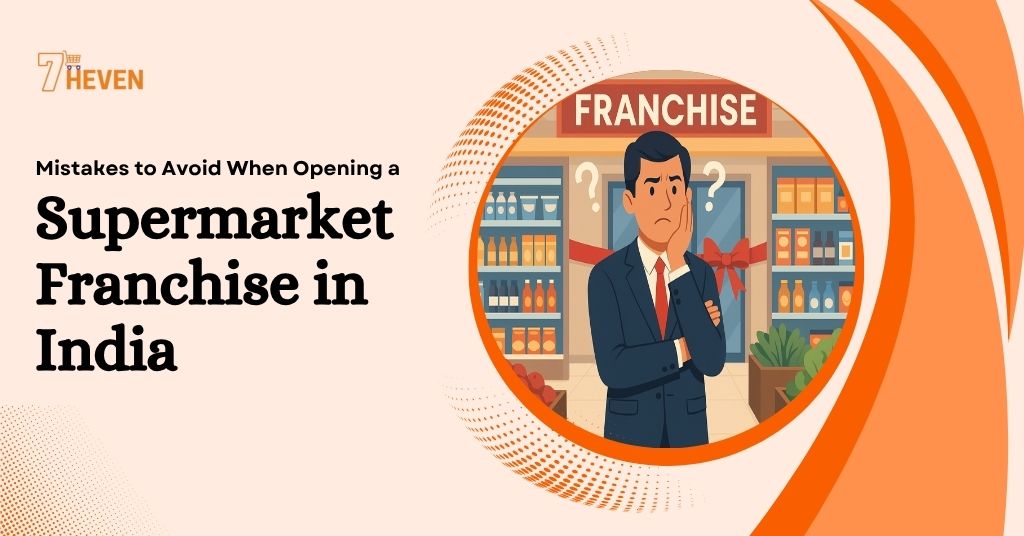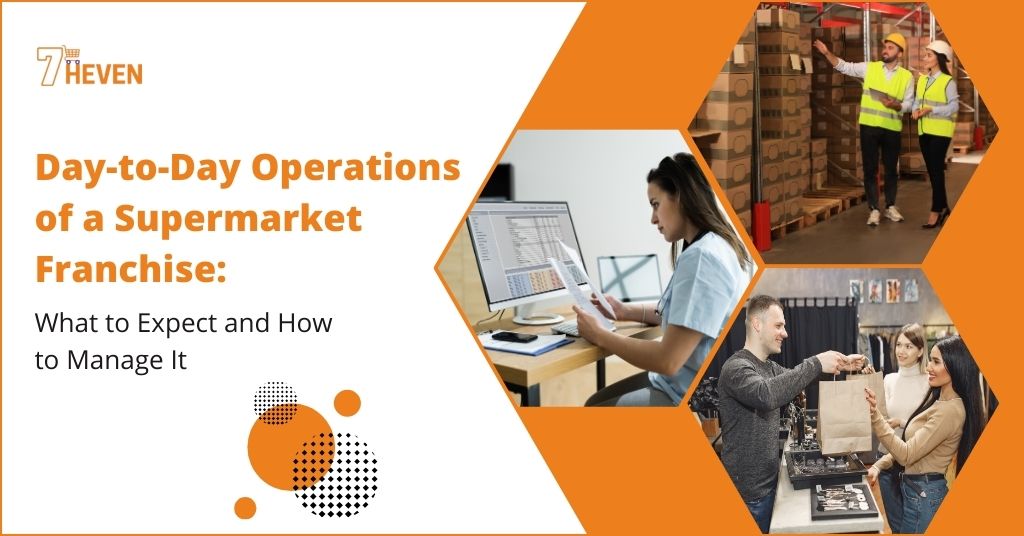Top 5 Mistakes to Avoid When Choosing a Location for Your Supermarket Business
Choosing the right location is one of the most important decisions in the supermarket business. A good location can make your store successful, while a bad location can reduce sales, increase losses, and even force you to shut down later. Many new supermarket owners rush through the location selection process and make mistakes that could have been easily avoided. In this simple and practical blog, we will discuss the top 5 location mistakes people make before opening a supermarket, and how you can avoid them to build a stable, profitable business. Avoid These 5 Common Mistakes Before Starting Supermarket Business: 1. Ignoring Local Demand and Customer Profile This is the most common mistake, opening a supermarket without understanding the people who live in the area. Every location has a different customer type, such as: Families Students Working professionals Retired citizens Lower-income groups Middle-class or upper-middle-class groups Each group has different buying power and different product preferences. Why this mistake is dangerous If you open a premium supermarket in a low-income area, you will struggle with sales.If you open a budget-focused store in a high-income society, customers will choose bigger brands nearby. What to check before choosing a location Number of families living in the area Their average monthly income Popular products they buy Local shopping habits Age groups and culture A supermarket must match the lifestyle of the people in the location. Read More : Top Challenges in Running a Grocery Store 2. Choosing a Low-Footfall Area Just Because the Rent Is Cheap Many new owners think:“Rent yahan sasta hai, yahan store khol lete hain.” This is a risky mindset. A low-rent area usually means: Less population Fewer people walking by Lesser visibility Fewer apartments or societies No schools, offices, or markets nearby Why this mistake reduces sales A supermarket grows when more people pass by the store every single day.If the area is silent, empty, or hidden, your footfall will remain low, even if your store is excellent. What to look for instead A corner location Near a residential society Close to schools or offices On a main road or connecting road Near daily-need shops Near public transport routes Paying slightly higher rent in a high-footfall area is always better than saving rent and losing customers. 3. Not Checking Competition Properly Many owners see an empty shop and decide to start a supermarket without checking who else is selling nearby. Competition affects: Your pricing Your product mix Your footfall Your daily sales Your marketing cost Mistakes people make Opening too close to an established supermarket Ignoring big competitors like Reliance, DMart, or local chains Underestimating small kirana stores that have loyal customers What you should do Map all supermarkets within 1 km Compare product variety Compare pricing levels Notice customer rush times Check if the competitor is strong or weak Identify gaps they are not covering Example:If competitors don’t stock premium snacks, organic items, or home essentials, you can focus on those categories. Competition research helps you position your supermarket better. Read More : Local Sourcing in Supermarkets: Building Community Trust & Reducing Costs with 7Heven 4. Ignoring Parking, Accessibility, and Convenience A supermarket is not like a small shop. Customers often come with: Scooters Cars Large bags Monthly grocery lists If parking is difficult or the road is too narrow, customers will avoid your store and go somewhere else. Common location mistakes No parking space Traffic-heavy road Slippery or broken footpath Stairs that make entry difficult No space for delivery vehicles Store hidden behind bigger buildings What to check before finalizing Is there space for 2–3 cars and 10+ two-wheelers? Is the entrance at road level? Is the location visible from the main road? Can customers easily unload monthly grocery items? Can suppliers easily deliver stock? Accessibility is a big factor in customer convenience. 5. Not Understanding Store Size Requirements for That Area A big mistake people make is choosing a store size without thinking about the area and expected sales. Common size mistakes Choosing a very small store in a crowded area Taking a very big shop in a low-demand area Taking a long, narrow shop that feels congested Choosing a store with poor ventilation or lighting Your store size should match: Customer demand Product categories Shelf layout Expected footfall Staff movement Billing counters Storage and unloading area General size guidance Small towns: 1500–2000 sq.ft Medium cities: 2500–3500 sq.ft Big metro areas: 4000–6000 sq.ft A balanced store size helps control rent and gives enough space for customers to shop comfortably. Read More : Financing Your Supermarket Franchise: Options and Tips for Success BONUS TIP: Always Study Future Growth of the Area A location may not look perfect today but can become a strong area in the next 1–2 years. Look for places where: New apartments are being built Corporate offices are coming New roads or metros are planned Growing population can be expected Future growth increases future demand, which increases your supermarket sales. How 7Heven Helps You Choose the Right Supermarket Location Choosing the right location is not easy. It requires experience, market study, and understanding of supermarket demand. Many first-time business owners make mistakes because they don’t know what to check. 7Heven helps you avoid these mistakes through a complete location analysis process: 1. Detailed Site Survey We study the population, footfall, competition, traffic flow, and customer buying behaviour of the area. 2. Area Code Verification We check if the area has the right potential for a profitable supermarket. 3. Store Size Guidance Based on your budget and the locality, we guide you on the correct store size. 4. Competitor Study We analyse nearby supermarkets and identify gaps that you can fill. 5. Visibility & Accessibility Check We ensure the store is visible, easy to reach, and convenient for customers. 6. Future Market Potential Our team also checks long-term demand and upcoming developments. With this detailed process, 7Heven helps new franchise owners start with confidence, reduce risk, and increase their chances of success. Conclusion Choosing
Top 5 Mistakes to Avoid When Choosing a Location for Your Supermarket Business Read More »










